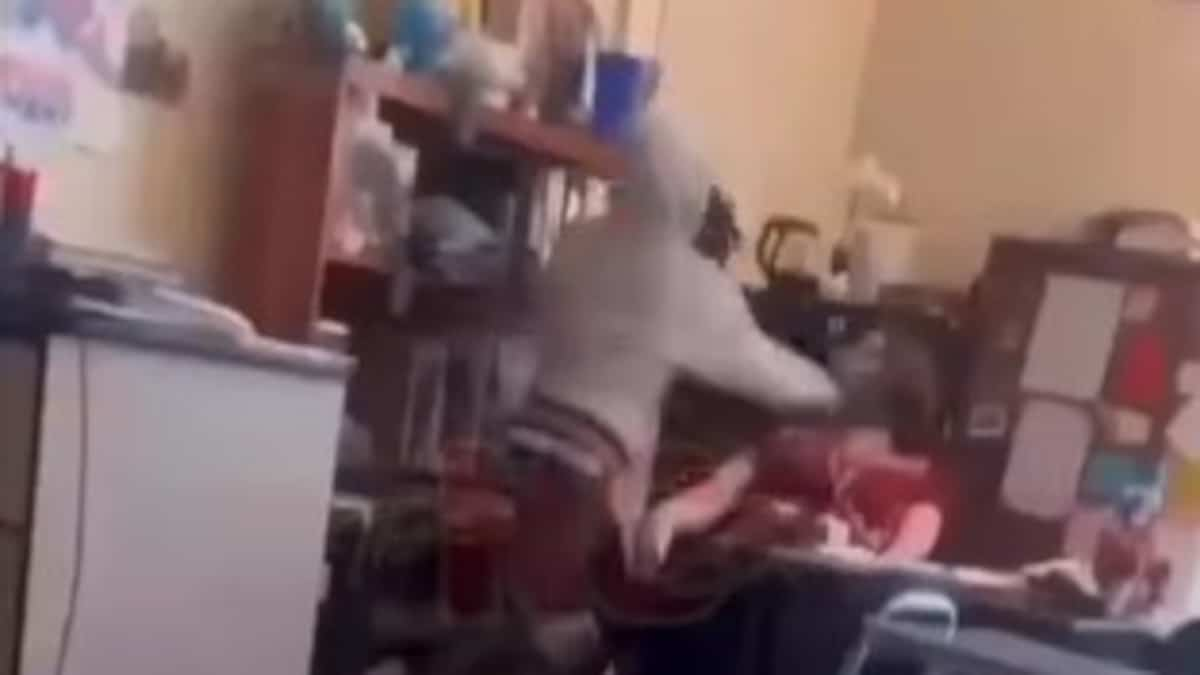
(Moscow) ‘Stop the Lord of Hell’: For several weeks, the Russian authorities have been trying to give a religious and sacred dimension to their offensive against Ukraine. But this discourse is divided even within the Orthodox Church.
Pointing to the importance of the spiritual dimension that the Kremlin seeks to instill in its military intervention, Vladimir Putin, during his New Year’s greetings, emphasized that “moral correctness” is on Moscow’s side.
This claim illustrates the desire of the authorities to dispel the doubts of a part of the population that upset the balance due to the entry of Russian forces into a country where the majority of believers, as in Russia, are Orthodox Christians.
With Moscow suffering several military setbacks, religious rhetoric has gained increasing momentum since the fall, with senior officials and state media portraying the intervention in Ukraine as a “holy war” against a West that was portrayed as decadent.
At the beginning of November, former President Dmitry Medvedev, now the number two in Russia’s powerful Security Council, asserted that the “sacred goal” of the attack was to “stop the lord of hell.”
“We are fighting those who hate us and ban our language, our values and even our faith,” said Medvedev, who considers Russia’s enemies Ukrainian “Nazis” and “dogs” of the West.
Military priests
Besides sermons, the intertwining of the religious and the military is evidenced by dozens of priests being sent to the front to support the soldiers.
Priest Svyatoslav Chorkanov explains to AFP that these missions are aimed at preventing soldiers from “losing their lives”. […]Even if the situation prompts them to do so.
The priest must “instill in the spirit of the army that prisoners should not be tortured […] We should neither loot nor harm civilians.”
The clergyman does not doubt the merits of this assault on Ukraine, which, according to him, consists in defending the “traditional values” of which the Kremlin and the Russian Orthodox Church present themselves as protectors.
“In Ukraine, even in conditions of war, we organize ‘gay pride’ to show adherence to Western values,” the priest explodes, echoing the rhetoric of Russian power in the “decadent” West.
A sign of the importance of these religious people in the conflict, Mr. Putin in November bestowed the title of Hero of the Russian Federation, the country’s highest honor, on Orthodox priest Mikhail Vasiliev who was killed in the combat zone.
Patriarch Kirill, head of the Russian Orthodox Church, also expressed support for the military offensive, saying support should be given to pro-Russian “brothers” in eastern Ukraine who “rejected” Western values.
During a sermon at the end of September, he affirmed that those killed while performing their “military duty” performed a “sacrifice that washes away all sins.”
For Nikita Astakhov, artistic director of the “spiritual” spiritual theater “Glass” (“The Voice”), which puts on plays dealing with religious issues, “Russia has always stood up to evil.”
“Russia will never be defeated as long as more than half of Russia’s population is Orthodox,” he told AFP.
“Middle Age”
But the Church’s involvement in the conflict and the growing religious discourse surrounding it is not unanimous in Russia.
“The rhetoric of ‘jihad’ comes straight from the Middle Ages,” Andrei Kordochkin, a priest of the Madrid-based Russian Orthodox Church, told AFP in an interview.
“This is the exact term used by Pope Urban II when he blessed the crusade (which was launched in 1096), promising the crusaders that their sins would be forgiven,” he explains.
But it is impossible to return to the past. […] War, which is a form of killing, cannot have any spiritual meaning,” he adds.
If the Moscow Patriarchate showed explicit support for the military intervention, it would cause an uproar in the Orthodox world, with a bitter struggle between the Russian and Ukrainian Orthodox Churches.
Even within the Russian clergy, there are differences: from 1Verse March, a column against “fratricidal war” signed by 293 religious Orthodox.
Priest Andrei Kordochkin said: “Not only (Russian) society is divided, but also the church and clergy.”
Many of the signatories to the text were punished by the patriarchy, one stated, on the condition of anonymity. “Some of them were transferred from their parishes in which they had served for years and replaced by priests loyal to the authority,” he said, describing the Russian attack as a “catastrophe.”
This priest continues: “In recent years, the bonds between the Orthodox supreme authority and power have been strengthened.” “The state has helped the church a lot and this help has created a great dependence.”






